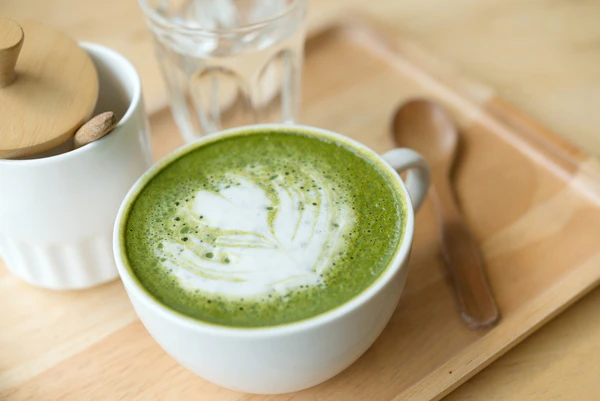What is matcha? What to know about the green drink taking over coffeeshops.
If you’ve visited a coffee shop in recent years, chances are you’ve encountered matcha on the menu.
The popularity of matcha has been steadily growing, attributed to the increasing interest in healthier dietary choices and its visually appealing nature, often shared across social media platforms.
“Matcha tea has gained traction in the western world, with its vibrant green hue making appearances in countless social media posts,” says Caroline Thomason, a registered dietitian and diabetes educator based in Virginia.
Here’s a primer on matcha from nutrition experts.
What exactly is matcha?
Matcha is a type of green tea crafted by finely grinding green tea leaves into a powder. It boasts a subtly earthy flavor profile.
While its origins trace back to China, the matcha consumed today is heavily influenced by Japanese traditions.
Does matcha contain caffeine?
Yes, matcha does contain caffeine, although its levels are generally lower compared to coffee, making it a popular alternative for some.
A typical cup of matcha contains approximately 70 mg of caffeine, which Thomason equates to a shot of espresso and slightly less than a cup of coffee.
“Matcha tea also contains compounds that moderate the absorption of caffeine, resulting in a more gradual energy release, which many find beneficial,” Thomason explains.
However, individuals sensitive to caffeine-induced anxiety or jitters may still opt to avoid matcha.
“While matcha has lower caffeine content and different energy effects compared to coffee, it may not suit everyone’s taste,” Thomason advises.
Is matcha beneficial for health?
Like traditional green tea, matcha offers a range of health benefits, including anti-inflammatory properties and potential disease-preventive effects.
Given its green tea origins, matcha shares many of these advantages. Some studies suggest that matcha consumption may promote liver, brain, and heart health.
“All varieties of green tea are rich in antioxidants and contain ECGC, a compound linked to improved metabolism and potential fat loss with consistent intake,” Thomason adds.











